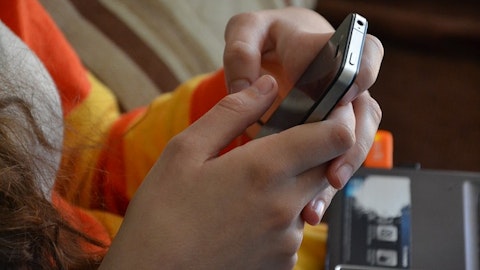Can you imagine the possible jobs that will be lost to robots as technology continues to advance and society adapts and changes along with it? We previously looked at some of the highest jobs in demand America has to offer, some of which have come about from these changes. However, on the other end of the spectrum are those jobs that lose their demand as they can be filled cheaply and more efficiently by machines.
We live in an ever-increasing technological era. There is a constant striving for mechanization, and with the aids of robotic workers, we can increase production, reduce harsh working conditions and improve our overall quality of life. But if I tell you that in the future there will be jobs that won’t exist for us humans, what would you think? Is it a disadvantage that jobs will be lost to robots or is it an improvement for our society?
In this article in particular we will take a look at six jobs that will become obsolete for humans. Robots might take over these jobs and it may help our society in some cases, but there are also some frightening aspects to this robotic lifestyle. No lines, no angry workers who take forever to do their job, no more complaints unless some robot breaks down. What will the future hold for us once these jobs that will be lost to robots start taking hold? Let’s begin by checking out what some of those jobs that are lost will be.
Telemarketers

Remember when you called a company’s customer service to complain about some problems with their product? Well, nowadays if you try hard enough and navigate through the machine responses, you might still be able to get in touch with a human that can actually solve your problem. But what if I told you that, in the future, there will be no more humans solving these?
Japanese technologists have come up with some amazing robotics that are defying how we understand reason. Creating robots that are able to make decisions and decide between several options is only the beginning. In Japan, there has been a lot of testing over robots that can actually become telemarketers, selling products over the phone as well as solving problems and becoming the front of customer services.
Drivers

Have you ever thought about going on a road trip and never having to touch the wheel? Or driving to a meeting and being able to prepare your speech while in the car? Google Inc (NASDAQ:GOOG) announced that it was working on automated cars as a way to increase safety and help humans reduce the time spent commuting to work. Volvo announced that they would have a driverless car by 2020. These improvements are meant to ensure road safety as well as traffic control and reduction of traffic jams.
With human supervisors in the passenger seat, seven test cars have driven 1,000 miles without human intervention and more than 140,000 miles with only occasional human control. This may seem crazy but in the near future we will actually have cars that won’t require us to drive at all, we will only have to set our destination and relax.
Keep on reading to know four of the other jobs that will be lost to robots in the not-so-distant future.
Astronauts

Through a partnership with General Motors Company (NYSE:GM), NASA’s Robonaut2 is the latest example of android technology. Equipped with a wide array of sensors and dexterous five fingered hands, it will initially handle menial jobs such as cleaning the International Space Station and assisting humans in space operations.
However, it could one day venture outside the station to help space-walkers make repairs or perform scientific work, according to NASA. Astronauts will still exist. But imagine the possibilities of space research if we are able to develop robots that can actually perform duties that humans cannot do in space. This is not as far in the future as we may think, since robots have been used by NASA for a long time.
Pharmacists
The next time you drop off a prescription order, you might see a robot behind the counter.
The UCSF Medical Centre recently launched an automated, robotics-controlled pharmacy at two UCSF hospitals with really good results. Once the computers receive a medication order from physicians and pharmacists, the computers are connected to robots who analyze the prescription order and sort through the cabinets in order to dispense either packages or individual doses of pills and drugs.
Machines assemble doses onto a thin plastic ring that contains all the medications for a patient for a 12-hour period, which is bar-coded. This helps a lot with efficiency at large hospitals that require several workers to keep track of patients’ medications.
The automated system also compounds sterile preparations of chemotherapy and non-chemotherapy doses and fills IV syringes or bags with the medications. This robotic system, which was tested and launched over the past year, so far has prepared 350,000 doses of medication without error.
Soldiers

This is the most frightening prognostic that we may encounter. Although soldiers have yet to be replaced by an army of robots, we seem to be moving in that direction as drones and other machines are increasingly being used in reconnaissance and combat missions. This is a Star Wars Nightmare.
One example is the MAARS (Modular Advanced Armed Robotic System), made by Foster-Miller, which has provided armed robots in Iraq. The robot is equipped with a GPS monitor;,it can be programmed to differentiate between fire and no-fire zones, to open doors, and even to drag out injured bodies. This is only the beginning of robotics in the military. Drones, robotic missile launchers, even driverless tanks may all happen in the near future.
Babysitters

If there’s anything we’ve learned from Hollywood, it’s that robots are not only deadly weapons, they are also great for entertainment. Aeon Co., a major Japanese retailer, introduced a four-foot-tall yellow and white robot at a store in 2008 whose job is to babysit children while the adults shop.
Other models include the Hello Kitty robot, which is perfect for whoever does not have a lot time to stay with their child, and NEC’s PaPeRo robot, which tells jokes, gives quizzes, and can track kids using a radio-frequency identification chip.





